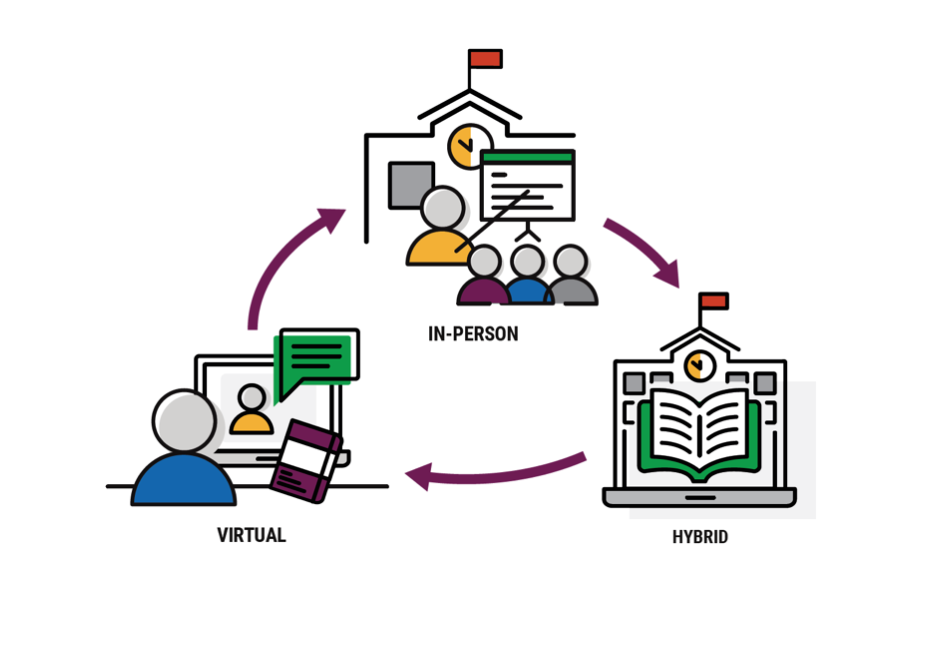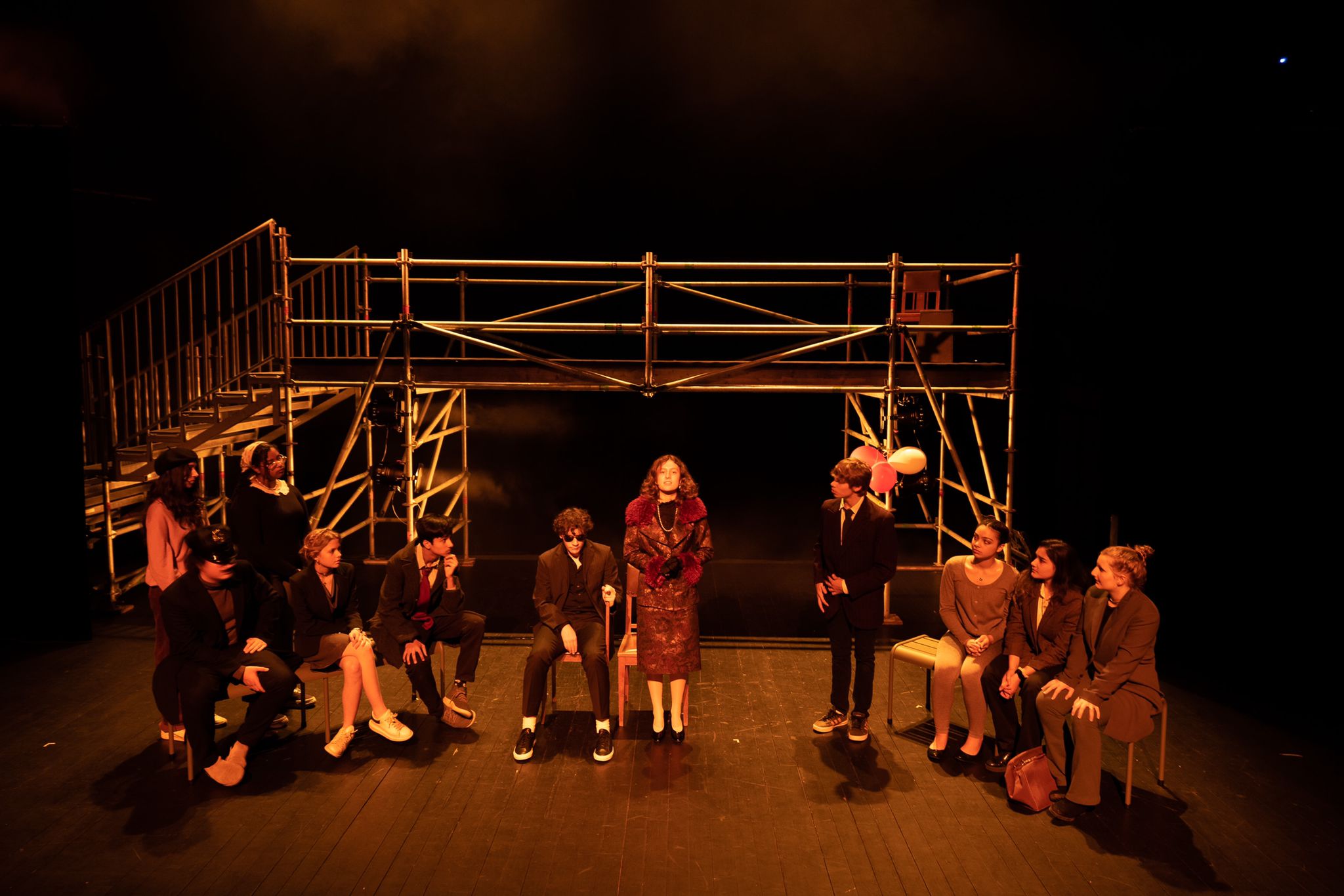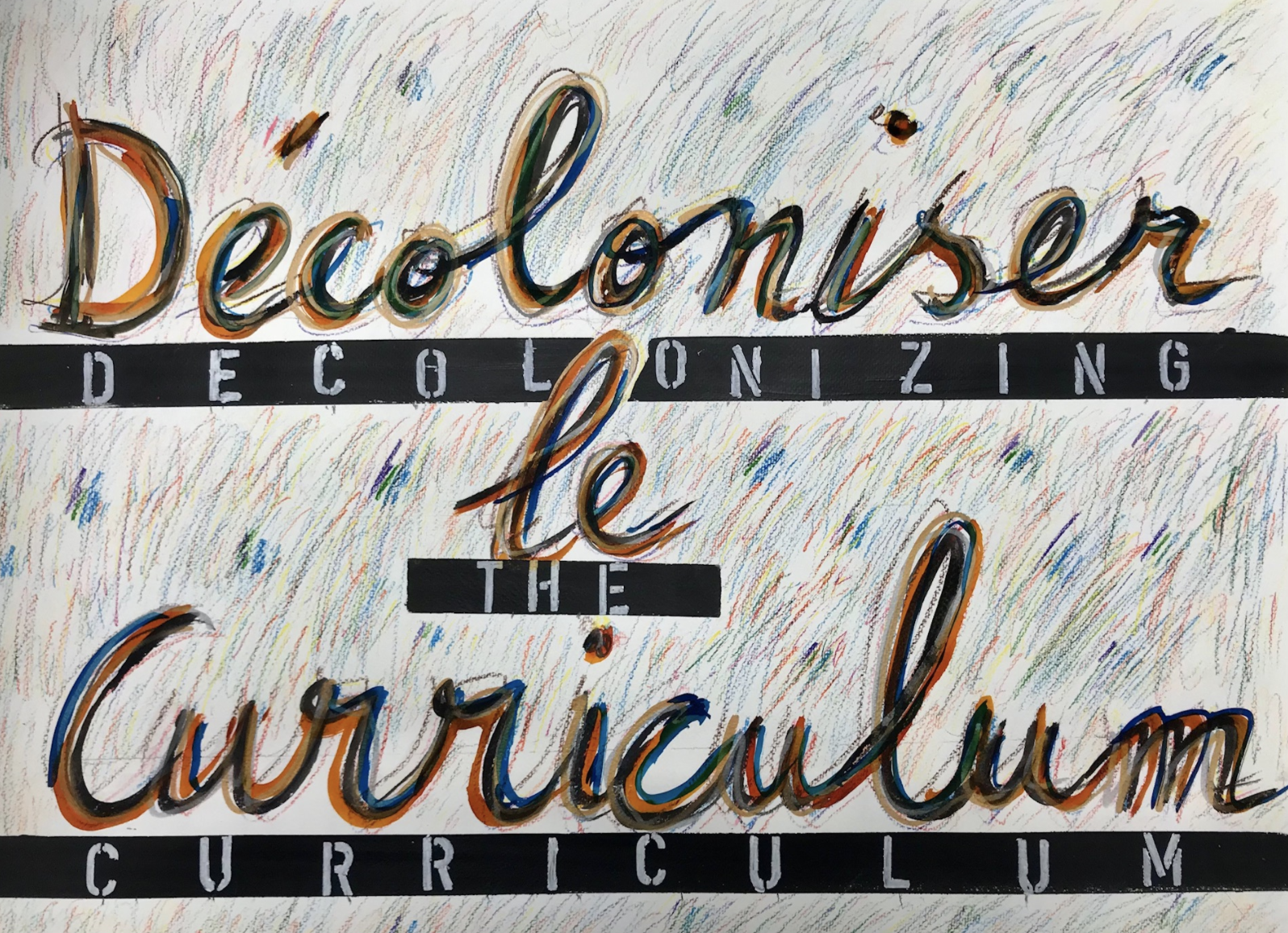By Chiara Turrettini, Y11
Did you enjoy the online learning experience during lockdown? Would you like to do online learning again? Well, starting next year this may be possible. On the 22nd of January all year 11 students across all 3 Ecolint campuses received an email from Dr David Hawley asking if they would be interested in a hybrid learning model for some courses of the IB. They were asked to fill out a form where they stated their interest and which subjects they would like to possibly do as a hybrid. Unfortunately this model will only be offered to current year 11 students but if it works well, they might expand to other years. I had the opportunity to speak to Dr Hawley and ask a few questions on this new concept of learning.
Firstly, how would the hybrid learning concept look? Hybrid learning would have 3 components: 2 online components and 1 live, face to face part. For the first online component, one of them will be asynchronous, meaning that the student would be given work and would have to do it in their own time. For the second online component, it would be synchronous such as a google meet where it would be a scheduled time and all the students in that class would be on the google meet. Lastly, the live component would be where all the students and teacher get together as a normal class and perhaps go on a field trip to learn about the subject. An example of this could be that a geography class goes to a glacier during their glacier unit and is able to learn about the glacier first hand. These three components might be split equally so you would do a third of each component, however this could change throughout the process of putting these classes together or even during the first year of the course.
This new hybrid concept is not a pure online course, that is why it is called hybrid. Dr Hawley has been working with this concept for 15 years. In 2005, he led the first online IB economics course in the history of the IB at Atlanta International School. However this course was purely asynchronous and there were only 3 students in the class. Then Dr Hawley began to work with Pamoja, an online learning platform that offers online learning solutions for secondary education. This platform uses no real human interaction simply chats that are not live. In addition, Dr Hawley has seen that more and more of students’ lives are online and he believes that this should be part of students’ education.
There have been several questions about this new concept such as how will the schedule and exams look and which subjects will be offered. Firstly, the schedule is not known at the moment. These classes could be after school or even during the weekends, however this depends on the students’ opinions. On the 8th of February, all the year 11 students in all campuses were invited to a google meet with Mr Richard Allaway, a teacher at the Nations Campus, and the students were asked questions about what would suit the students more. We were given a poll asking if we would prefer having the online part at 7am to 8:30 am, 5pm to 6:30pm or 6pm to 7:30pm. The poll showed that most of the students would prefer the 5pm to 6:30pm time slot. They are also thinking of using Saturdays for the face to face sessions with the whole class as it would be close to impossible to find a time where all the students in each campus and the teacher have a free period during the school day. Nevertheless, if this course is after school or on some Saturdays, the times during the schedule where you would normally have a class would then be a free period to either study for other subjects, work on the asynchronous part of the course or simply sleep in. Secondly, how would the exams and assessments look? These would be exactly the same as a normal class. Lastly, which subjects would be offered? Looking at the google form results, the 3 most wanted subjects were computer science, psychology and history in french. These seem popular as they are either courses only offered in one or two of the campuses or sometimes students are interested in these courses but not enough students are interested to form a class in that campus. This then allows them to create a class because around the three campuses there may be enough students to create a class. Another potential subject could be theory of knowledge, however during the google meet with Mr Allaway, year 11 students were asked if they would be interested but as none of the year 11 students know what it is, they couldn’t really decide. Nonetheless, Dr Hawley says that if these lessons are done well, any subject could fit for this concept and that in 2030, for example, this may be normal in a school.
This new concept allows more student agency and is campus agnostic. This is a very exciting new concept that our school is bringing on and we are all excited to see how it turns out.



